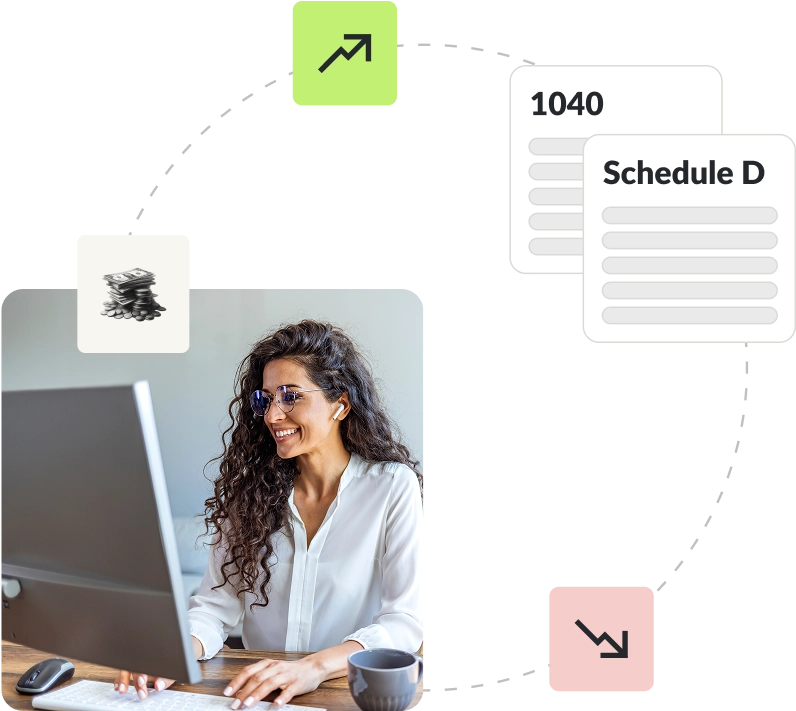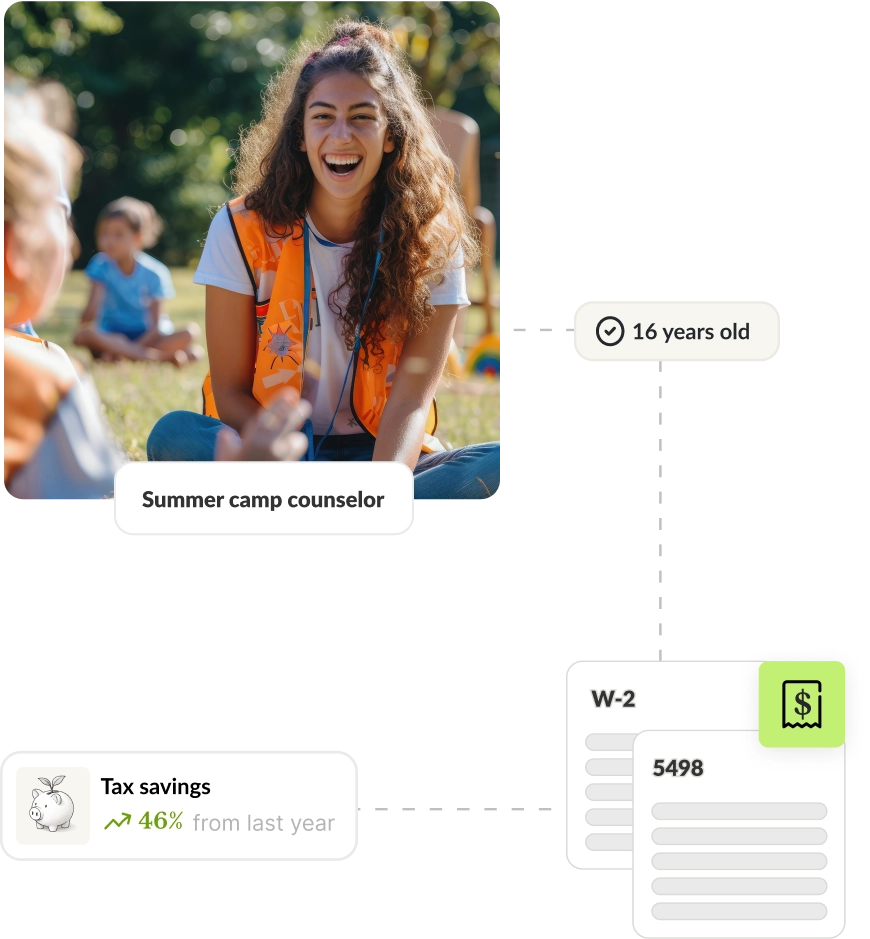2026 North Dakota State Tax Deadlines
North Dakota Individual income tax filing deadlines and extensions for 2026
If you are a resident or have been involved in business operations within North Dakota, you might be required to file North Dakota State taxes. North Dakota follows a progressive income tax structure with rates ranging from 1.1% to 2.9%. Therefore, it is essential to understand the specific deadlines and requirements for 2026.
North Dakota business tax deadlines for 2026
C Corporations' deadlines and requirements
C Corporations in North Dakota must file and pay Corporate Income Tax by April 15, 2027, following the federal due date schedule.
Filing requirements include:
- Complete Form 50-30 (Corporate Income Tax Return)
- File via eFileND or mail
- Payment must be made by April 15, 2027
- Mail submissions must be postmarked by the due date
Extension to file taxes in North Dakota for 2026
The Extension Deadline for North Dakota Corporate income tax returns is October 15, 2027. Form 50-30 EXT is required for extensions; payment is still due April 15, 2027.
Pass-through entities
North Dakota S Corporations and Partnerships tax deadlines for 2026
S Corporations and Partnerships must file in North Dakota by April 15, 2027.
Required forms include:
- Form 50-17—S Corporation Return
- Form 50-10—Partnership Return
Extension to file S Corporations and Partnerships taxes in North Dakota for 2026
The Extension Deadline for North Dakota S Corporations and Partnerships returns is October 15, 2027. Extension forms may be required; payment is still due on the original filing dates.
North Dakota Individual tax considerations for 2026
Filing requirements and income thresholds
North Dakota Individuals must file a State income tax return if their gross income exceeds specific thresholds based on filing status.
The progressive tax rates for 2026 range from:
- 1.1% on the first income bracket
- Up to 2.9% on higher income levels
Estimated tax deadline for North Dakota 2026
Estimated tax payments are due on the following schedule for calendar year filers:
- April 15, 2026
- June 15, 2026
- September 15, 2026
- January 15, 2027
Who must make estimated payments
You must make North Dakota estimated income tax payments during 2026 if you expect to owe a significant amount in North Dakota income tax after subtracting withholding and credits. Electronic payments are encouraged through the North Dakota online tax system.
Individual tax deadline for North Dakota 2026
Individual income tax returns are due April 15, 2027.
Available forms include:
- Form 60—North Dakota Individual Income Tax Return
Extension to file taxes in North Dakota for 2026
The Extension Deadline is October 15, 2027, to file your North Dakota Individual Income tax return. North Dakota grants a six-month extension without requiring separate extension forms. This is an extension to FILE, not an extension to PAY—payment is still due April 15, 2027.
What North Dakota tax professionals need to know
Several key considerations make North Dakota's tax landscape unique for 2026. North Dakota's progressive income tax system offers competitive rates, with the lowest top rate among states that impose income taxes. The state's energy-driven economy creates specific tax considerations, and North Dakota provides various business incentives.
Electronic filing requirements
North Dakota has implemented electronic filing systems for taxpayers:
- C Corporations and pass-through entities should file electronically through eFileND
- Individuals can use North Dakota's online system for free electronic filing
- Business deductions can be processed more efficiently through electronic systems
- Professional preparers must use approved software vendors
Unique North Dakota tax features for 2026
North Dakota offers several distinctive tax features, including:
- Progressive tax rates ranging from 1.1% to 2.9% the lowest top rate in the nation)
- Mineral extraction taxes are separate from income tax
- Strong fiscal position due to energy revenues
- No state sales tax on many necessities
Energy Industry Focus
North Dakota's significant energy production creates unique tax considerations:
Oil and Gas Industry
- Oil extraction tax on oil production
- Gas processing tax provisions
- Working interest depletion allowances
- Enhanced recovery incentives
- Bakken oil field considerations
Coal Mining
- Coal severance tax provisions
- Coal conversion facility incentives
- Mining equipment exemptions
- Reclamation bond considerations
Agriculture and Rural Economy
North Dakota's extensive agricultural economy includes special provisions:
- Agricultural land use assessment programs
- Beginning farmer programs
- Agricultural equipment sales tax exemptions
- Crop disaster relief provisions
- Rural development incentives
Business incentives and credits
North Dakota provides various business tax incentives:
- Renaissance Zone Program
- Research and Development Tax Credit
- Seed Capital Investment Tax Credit
- Biodiesel and Ethanol Production Incentives
- Renewable Energy Tax Credits
Manufacturing and Processing
North Dakota emphasizes value-added agriculture and manufacturing:
- Food processing industry incentives
- Agricultural processing equipment exemptions
- Manufacturing development programs
- Value-added agriculture initiatives
Technology and Innovation
North Dakota supports technology development:
- Research and development tax credits
- Technology-based business incentives
- University research Partnerships
- Innovation and entrepreneurship programs
Energy Production Tax Benefits
North Dakota's energy wealth creates unique benefits:
- Energy revenues support Low Individual income tax rates
- Mineral extraction taxes provide state revenue
- Property tax relief programs funded by energy revenues
- Infrastructure development supported by energy income
Border Considerations
North Dakota's location creates specific considerations:
- Canadian border trade considerations
- Agricultural export facilitation
- Cross-border commerce provisions
- International trade opportunities
Agriculture and Rural Development
North Dakota supports agricultural development:
- Agricultural equipment sales tax exemptions
- Beginning farmer programs
- Rural development incentives
- Agricultural processing programs
Tourism and Recreation
North Dakota's tourism opportunities:
- Theodore Roosevelt National Park
- Lewis and Clark Trail tourism
- Outdoor recreation development
- Cultural and heritage tourism
Transportation and Logistics
North Dakota's central location creates logistics advantages:
- Transportation and warehousing incentives
- Distribution center benefits
- Interstate commerce considerations
- Agricultural transportation provisions
Retirement income considerations
North Dakota provides certain retirement income benefits:
- Military retirement pay may be exempt from North Dakota state income tax
- Social Security benefits are generally exempt from the North Dakota state income tax
- Pension income considerations for residents
- Senior citizen property tax benefits
Professional tax guidance
For complex North Dakota tax situations, consulting with qualified tax professionals through an accounting firm directory can help ensure compliance and identify available tax-saving opportunities.
Sources
Don't miss State tax deadlines—Join Instead
State tax deadlines are approaching fast. North Dakota's low tax rates and energy industry benefits create attractive opportunities for tax planning and optimization.
Instead's AI-driven platform does the heavy lifting for you—automatically identifying tax strategies, monitoring your accounts for save opportunities, and ensuring you claim every deduction to which you're entitled. Generate comprehensive reports that make tax planning simple. No more guesswork, no more missed opportunities.
The material discussed on this page is meant for general illustration and/or informational purposes only and is not to be construed as investment, tax, or legal advice. You must exercise your own independent professional judgment, recognizing that advice should not be based on unreasonable factual or legal assumptions or unreasonably rely upon representations of the client or others. Further, any advice you provide in connection with tax return preparation must comply in full with the requirements of IRS Circular 230.
Please note that if any due date falls on a federal or state holiday or weekend, it may be adjusted to the next business day. Always verify current deadlines with the appropriate tax professional and authorities.
Looking for a different year?

























